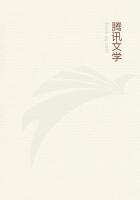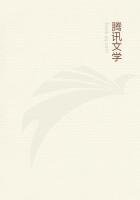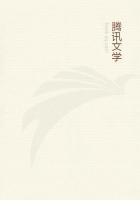I read the 'Marble Faun' first, and then the 'Scarlet Letter,' and then the 'House of Seven Gables,' and then the 'Blithedale Romance;' but I always liked best the last, which is more nearly a novel, and more realistic than the others. They all moved me with a sort of effect such as I had not felt before. They veers so far from time and place that, although most of them related to our country and epoch, I could not imagine anything approximate from them; and Hawthorne himself seemed a remote and impalpable agency, rather than a person whom one might actually meet, as not long afterward happened with me. I did not hold the sort of fancied converse with him that I held with ether authors, and I cannot pretend that I had the affection for him that attracted me to them. But he held me by his potent spell, and for a time he dominated me as completely as any author I have read. More truly than any other American author he has been a passion with me, and lately I heard with a kind of pang a young man saying that he did not believe I should find the 'Scarlet Letter' bear reading now. I did not assent to the possibility, but the notion gave me a shiver of dismay. I thought how much that book had been to me, how much all of Hawthorne's books had been, and to have parted with my faith in their perfection would have been something I would not willingly have risked doing.
Of course there is always something fatally weak in the scheme of the pure romance, which, after the color of the contemporary mood dies out of it, leaves it in danger of tumbling into the dust of allegory; and perhaps this inherent weakness was what that bold critic felt in the 'Scarlet Letter.' But none of Hawthorne's fables are without a profound and distant reach into the recesses of nature and of being. He came back from his researches with no solution of the question, with no message, indeed, but the awful warning, "Be true, be true," which is the burden of the Scarlet Letter; yet in all his books there is the hue of thoughts that we think only in the presence of the mysteries of life and death.
It is not his fault that this is not intelligence, that it knots the brow in sorer doubt rather than shapes the lips to utterance of the things that can never be said. Some of his shorter stories I have found thin and cold to my later reading, and I have never cared much for the 'House of Seven Gables,' but the other day I was reading the 'Blithedale Romance' again, and I found it as potent, as significant, as sadly and strangely true as when it first enthralled my soul.
In those days when I tried to kindle my heart at the cold altar of Goethe, I did read a great deal of his prose and somewhat of his poetry, but it was to be ten years yet before I should go faithfully through with his Faust and come to know its power. For the present, I read 'Wilhelm Meister' and the 'Wahlverwandschaften,' and worshipped him much at second-hand through Heine. In the mean time I invested such Germans as I met with the halo of their national poetry, and there was one lady of whom I heard with awe that she had once known my Heine. When I came to meet her, over a glass of the mild egg-nog which she served at her house on Sunday nights, and she told me about Heine, and how he looked, and some few things he said, I suffered an indescribable disappointment; and if I could have been frank with myself I should have owned to a fear that it might have been something like that, if I had myself met the poet in the flesh, and tried to hold the intimate converse with him that I held in the spirit. But I shut my heart to all such misgivings and went on reading him much more than I read any other German author. I went on writing him too, just as I went on reading and writing Tennyson. Heine was always a personal interest with me, and every word of his made me long to have had him say it to me, and tell me why he said it. In a poet of alien race and language and religion I found a greater sympathy than I have experienced with any other. Perhaps the Jews are still the chosen people, but now they bear the message of humanity, while once they bore the message of divinity. I knew the ugliness of Heine's nature: his revengefulness, and malice, and cruelty, and treachery, and uncleanness;
and yet he was supremely charming among the poets I have read. The tenderness I still feel for him is not a reasoned love, I must own; but, as I am always asking, when was love ever reasoned?
I had a room-mate that winter in Columbus who was already a contributor to the Atlantic Monthly, and who read Browning as devotedly as I read Heine. I will not say that he wrote him as constantly, but if that had been so, I should not have cared. What I could not endure without pangs of secret jealousy was that he should like Heine, too, and should read him, though it was but an arm's-length in an English version. He had found the origins of those tricks and turns of Heine's in 'Tristram Shandy' and the 'Sentimental Journey;' and this galled me, as if he had shown that some mistress of my soul had studied her graces from another girl, and that it was not all her own hair that she wore. I hid my rancor as well as I could, and took what revenge lay in my power by insinuating that he might have a very different view if he read Heine in the original. I also made haste to try my own fate with the Atlantic, and I sent off to Mr. Lowell that poem which he kept so long in order to make sure that Heine had not written it, as well as authorized it.















